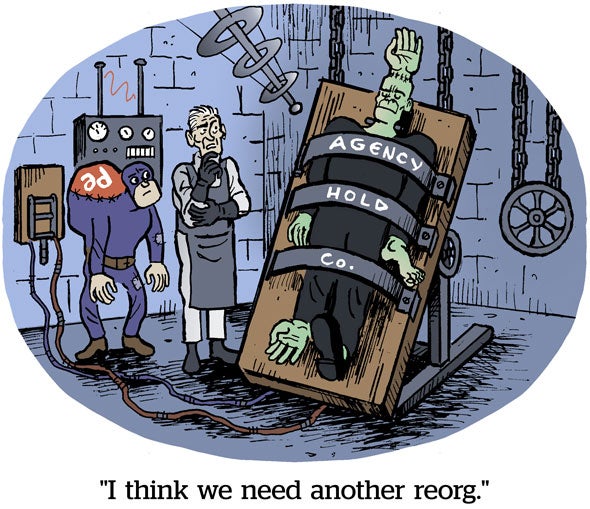Here’s today’s AdExchanger.com news round-up… Want it by email? Sign up here.
Why Holdcos Are Letting Go
Thursday was busy at Interpublic Group.
First, IPG sold Huge, one of its two major digital agencies, to a PE firm, and put the other, R/GA, up for sale, Ad Age reports.
Then IPG announced its acquisition of Node Intelligence, a Mumbai-based retail analytics company, for nearly $100 million, according to The Wall Street Journal.
Buying Node, which is an analytics software business and not an agency, continues a trend of agency holdcos getting outside of their comfort zone with new business models.
For example, LUMA CEO Terry Kawaja penned a column for AdExchanger earlier this week attributing Publicis Groupe’s outperformance versus its peers to its embrace of data and tech business models.
IPG’s acquisition of Acxiom in 2018 brought IPG a strong consumer data backbone, Jarrod Martin, CEO of IPG’s data units Kinesso and Acxiom, tells the Journal. “But what we’ve been missing is product and commerce data at scale that we can use to augment that consumer data.”
Standing On Principal
Speaking of IPG, it claims buyer opposition to principal-based buying is dying down, and its leadership is bullish on the controversial strategy, Marketing Brew reports.
IPG’s clients are increasingly open to buying media that’s been purchased and resold by its agencies, CEO Philippe Krakowsky said during the company’s Q3 earnings call in October. And rather than pull back in light of this year’s renewed kerfuffle over the practice, IPG is looking to grow its principal-based buying business.
“It used to be [that] you don’t do this,” Krakowsky said. “Now it’s part of the decision matrix for many clients.”
Meanwhile, one of IPG’s agency holdco peers, WPP, has openly criticized the tactic. CEO Mark Read blasted principal-based buying as a black box during a WPP earnings call in August.
Read’s comments then prompted Publicis CEO Arthur Sadoun to defend the strategy in an interview with Campaign in October. “I don’t know exactly what WPP was trying to achieve when [Read] was talking about black boxes,” Sadoun snarked. He claimed Publicis’s media platform is “the opposite of a black box” and has “zero tolerance for garbage media.” According to Sadoun, principal-based buying accounts for just 1% of US revenue at Publicis.
Prediction: Expect the agency catfighting over this topic to continue next year.
Billionaire Bias
Americans of all political stripes are increasingly mistrustful of legacy media – and of billionaire owners exerting control over newsrooms.
But that’s not stopping the billionaires.
While speaking at The New York Times DealBook Summit on Wednesday, Jeff Bezos, who owns The Washington Post, said he was “very proud of the decision” to spike the paper’s endorsement of Kamala Harris, Deadline reports.
But while Bezos acknowledged he’s “a terrible owner for the Post from the point of view of the appearance of conflict” – he cited the many businesses he owns that face government oversight – he believes exercising his control over certain key editorial decisions actually makes the paper seem less biased. And either way, it’s all good, he added, because “when they need financial resources I’m available.”
Meanwhile, the billionaire owner of The Los Angeles Times, Dr. Patrick Soon-Shiong (who also nixed his paper’s Harris endorsement), declared all opinion headlines must be reviewed by himself following a recently published column that criticized Elon Musk, Status reports.
Soon-Shiong also reportedly plans to implement an AI-powered bias detection meter on all of the publication’s articles and some form of AI-based button that will give readers “both sides” of a story.
But Wait! There’s More!
Nadav Shoval, OpenWeb’s ousted CEO who refused to quit, speaks about his battle with the board. [Business Insider]
Perplexity has recruited its second batch of publisher partners to license data and content for its AI model and search results. [Adweek]
What it takes for Amazon and others to accomplish same-day delivery. [NYT]
OpenAI adds a $200 monthly ChatGPT Pro subscription and a new business model. [Bloomberg]
How to check which apps on your iPhone Apple uses to train its AI models – and how to disable their access. [Forever Wars]
The kids are online: How brands are navigating Gen Alpha marketing. [Marketing Brew]
You’re Hired!
PadSquad appoints Matt Fusco as SVP of operations. [release]














